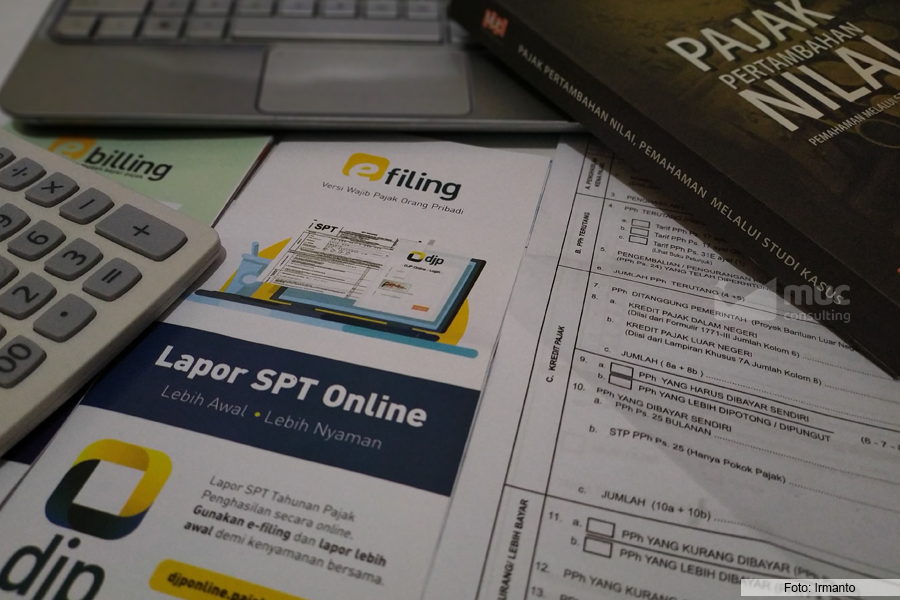The government's tax policy plan has again become a polemic. This time, it is about a Value Added Tax (VAT) implementation plan on basic needs and a number of strategic service sectors, such as education and health services. The polemic could be avoided if transparency and dissemination were put forward rather than making it a political commodity in a narrow space.
The Author emphasized the last line since the effort to simplify the VAT provisions in the Omnibus Law seems like they were sent hastily to Senayan (The House of Representatives). If we flashback, Omnibus Law always appears in a sudden, lacks of transparency, and its discussion often interrupts the waiting list of the National Legislation Program (Program Legislasi Nasional/Prolegnas).
Don't expect that the public had free access to the Omnibus Law draft if mass media did not leak it or social media did not make it viral. Clarifications by the authorities and government spokespersons, as usual, were only made after the issue has gone wild. Therefore, this issue obviously becomes a highlight for the public who are facing various economic and social problems due to the pandemic.
Read: VAT on Consignment Transfer vs. Transfer to Intermediary Traders
In fact, if only the government opened up from the beginning and explained it in the simplest language, the people would understand, especially related to the purpose and objective of eliminating basic needs, as well as education and health services from the list of goods and services exempted from VAT.
Hidden Motive
A problem arises when the people—with limited access and knowledge—analyze the points of Article 4A of the VAT Law, which were abolished in the General Provisions and Tax Procedures Law Bill (Rancangan Undang-Undang Ketentuan Umum dan Tata Cara Perpajakan/RUU KUP) draft, particularly related to the basic necessities, educational and health services, which are excluded from the list of goods and services that are not subject to VAT.
Anyone who is unfamiliar with taxes will definitely conclude that the government will tax these goods and services. Nothing is wrong with that conclusion. And the plan seems to be that way.
Despite the hidden motive—which could be noble—behind the policy proposal, this tax reform effort appears to be intended to simplify the VAT provisions, namely by clarifying the definition of Taxable Goods (Barang Kena Pajak/BKP) and Taxable Services (Jasa Kena Pajak/JKP) that have always been ambiguous and multi-interpretation.
In this case, goods and services exempted from VAT are likely to be narrowed down into two groups.
First are goods and services that have become objects of local taxes, such as hotel and restaurant taxes, a parking levy, and entertainment taxes.
Second are goods and services that will never become the object of VAT permanently, such as money, securities, government services, religious services, and so on.
Read: Raising VAT Rate Solves Problems (Not) Without Problems
Regarding the sensitive issue that has become polemic, it seems that the government will not be so cruel to tax goods and services that are highly needed by people, especially people in need.
On several occasions, the Ministry of Finance has also clarified that only basic necessities, educational, and health services with premium category will be taxed. It is also by the consideration of the rate layer that eases consumers. Nevertheless, until today, it is still not clear what “premium” means. The promise is confined to the words of the authorities that have not been clearly written in the KUP Bill.
Perhaps, and likely, the government will accommodate the promise in Article 16B of the VAT Law. If so, it means that basic necessities, education and health services will be included in certain strategic goods or services, which can be provided with non-collected VAT facilities.
In other words, basic necessities, educational and health services can still be exempted from the imposition of VAT. It may be further regulated through a Government Regulation (Peraturan Pemerintah/PP).
The concept of non-collected VAT is actually similar to the tax treatment of electricity consumption, which falls into the category of VAT object. However, so far, residential electricity with a power of less than 6,600 watts has been granted a VAT exemption. If it is true, it really doesn't matter because the regulation becomes simpler.
The Ministry of Finance also emphasized that the taxation of "premium" basic necessities, educational and health services will not be implemented in the short run or will only be implemented after the economic and social conditions are conducive.
Apparently, with this new proposal, the government is attempting to strengthen the tax base that could potentially be subject to VAT in the future or post-pandemic, especially from goods and services that are excluded from the list of goods and services exempted from VAT.
The Importance of Dissemination
Unfortunately, this plan has not been properly communicated to the public. Instead of being supported, the plan is opposed by many people who are already skeptical of the government’s secretive attitude. Moreover, this issue arises in the midst of the condition of the community burdened with health, economic, and social problems due to the COVID-19 pandemic.
The government should respect taxpayers by listening to the aspirations of all parties in policy-making. Therefore, transparency and accountability must be prioritized, starting from the stages of planning, discussion, execution, to policy evaluation. The key is active communication and dissemination to all levels of society.
Although it is too late, the Author appreciates the government's efforts to clarify this issue that has already gone wild. The government has promised not to carelessly tax basic necessities, educational services and health services. Let's keep an eye on and hold that promise since the slightest possibility can change the attitude of policy-makers in the future.
**) A short version of this article was published in Kompas.com on 29 June 2021.
Opinion
Let's Keep an Eye on the VAT Policy!
Opinion
Let's Keep an Eye on the VAT Policy!
Karsino Miarso,
Sunday, 04 July 2021

Disclaimer! This article is a personal opinion and does not reflect the policies of the institution where the author works.






